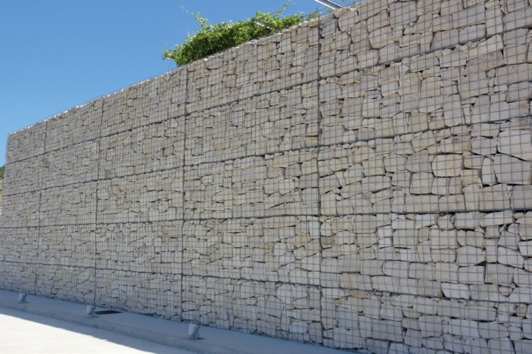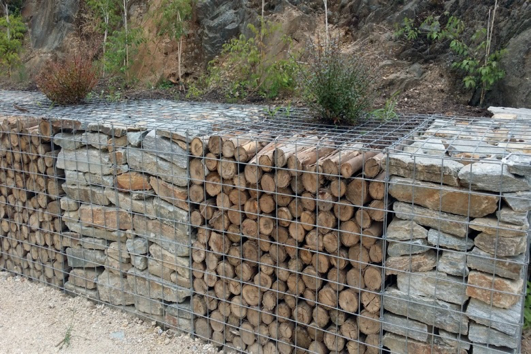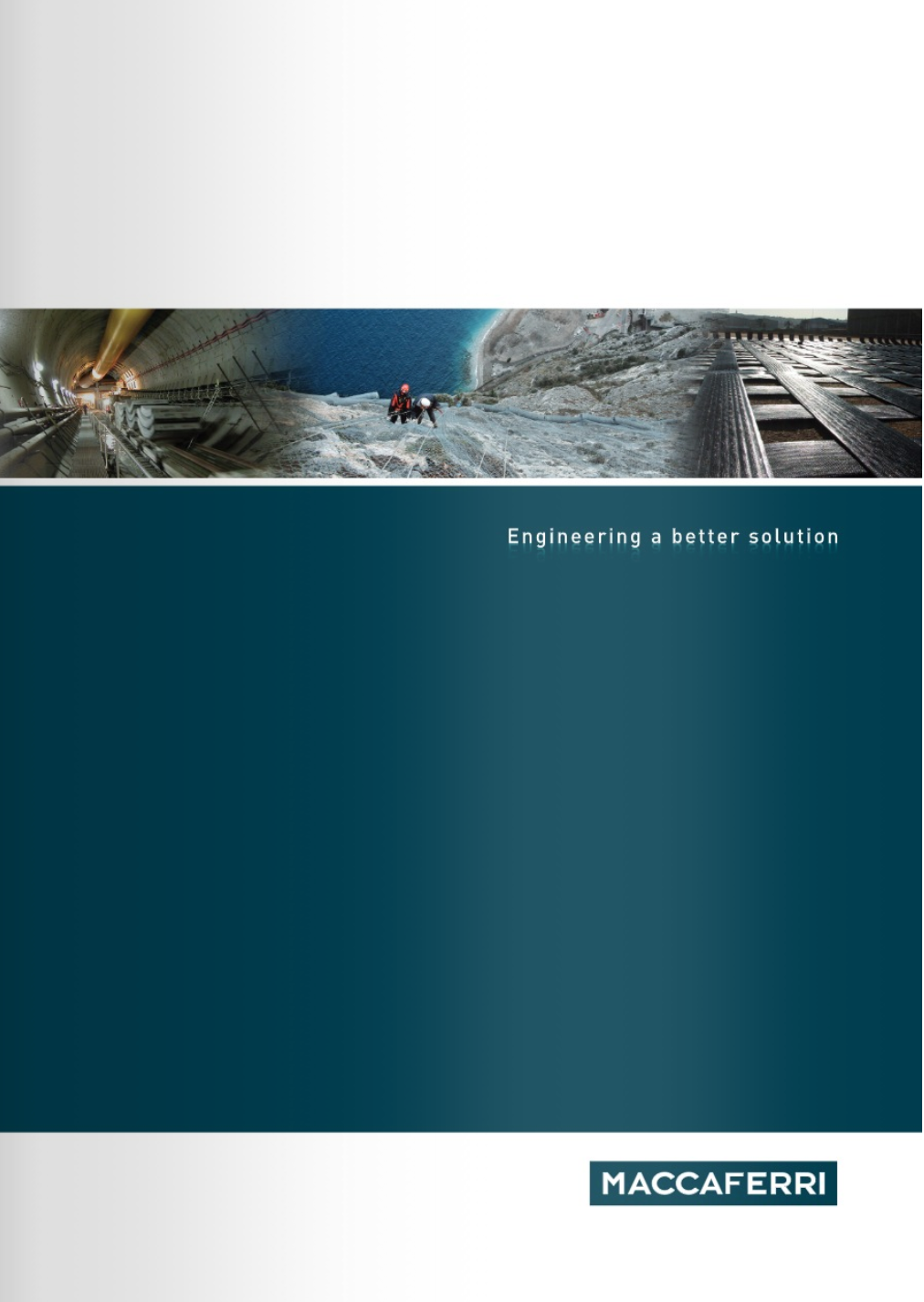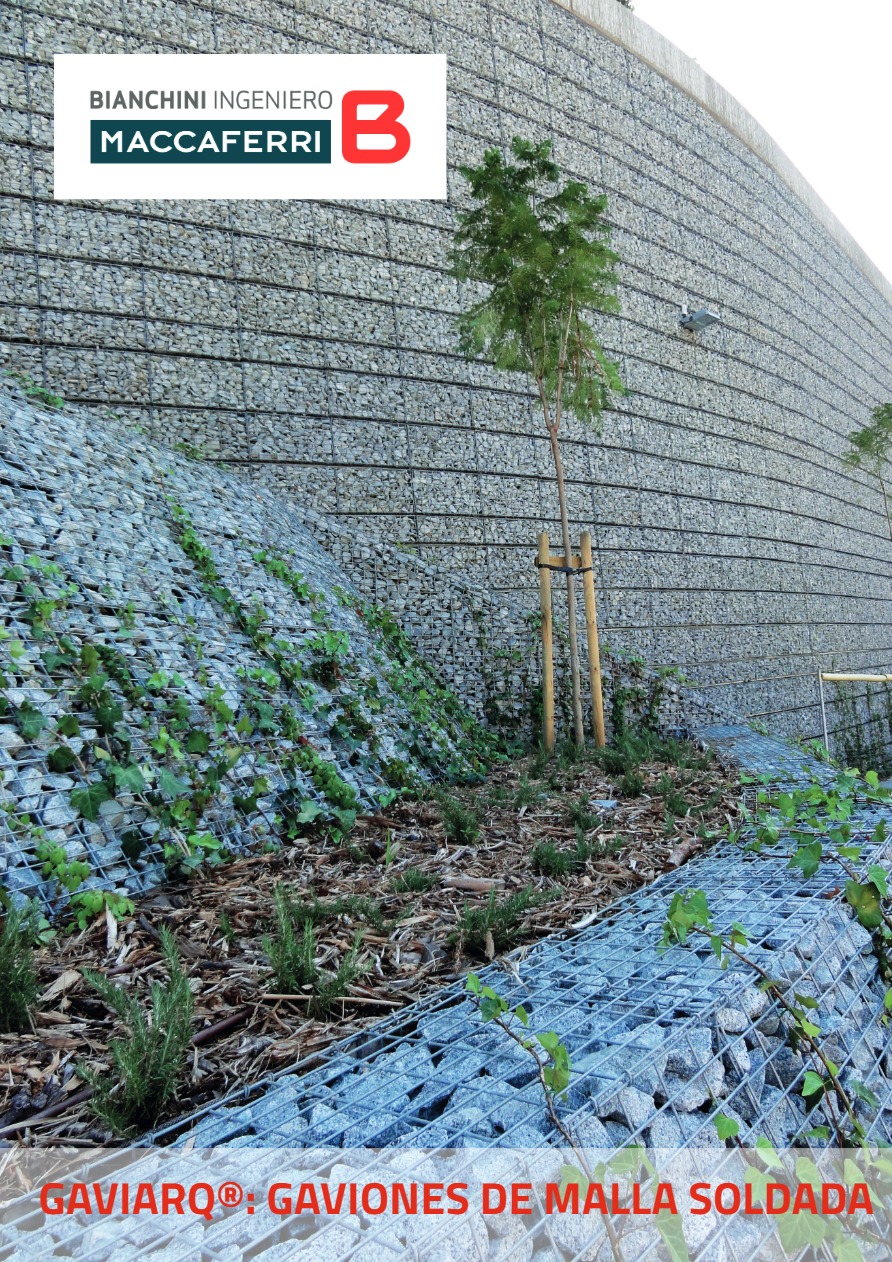These environments are the most common except for cases affected by direct proximity to the sea and / or high levels of pollution, which must be classified as C5 and CX. In these two cases, it is only possible to use alloys with organic coatings, such as PoliMac® with which we ensure a durability of more than 120 years. Another alternative will be the use of AISI 316 Stainless Steel or similar grades.
As can be seen from this table, in the case of a C3 environment, on highways with traffic, with gas emissions from combustion or medium to large cities, GalMac® C3 (Zn90Al10) is the only alloy that guarantees construction durability of more than 50 years.
CE MARKING
All our elements to configure electrowelded mesh gabions have the CE mark. By adding the CE marking to a product, the manufacturer declares, under his sole responsibility, the performance of this product with all the legal requirements of the EU and ensures the validity of the product.
TECHNICAL CHARACTERISTICS OF OUR GABIONS
GAVIARQ®

Manufacturing Certified by the UNE EN ISO 9001 Standard
Wire Diameter: 4, 4.5 and 5.0 ± 0.08mm (EN 10218-1-2 Table 1)
Average Wire Strength: 700 MPa (EN 10218-1-2)
Minimum coating: 275g / m2 Galmac® C3 (EN 10244-2 Class A Table 2)
Mesh size tolerance: ± 3 mm (EN 10223-8 Section 7.3. Table 3)
Panel dimension tolerance: ± 3 mm / m (EN 10223-8)
Resistance to welding shear: average greater than 75% of the breaking load of the wire of smaller section and individual values not less than 50% (EN 10223-8 Section 7.5).
Gabion dimension tolerance: ± 35 mm (EN 10223-8)
Dioxide Corrosion: Less than 5% of the surface with red oxide after 56 cycles (EN ISO 6988)
Salt Corrosion: Less than 5% of the surface with red oxide after 3500 h of exposure (EN ISO9227).
Durability
Environment C2:> 120 years
Environment C3:> 50 years
Environment C4:> 25 years
SPECIAL PIECES
Trapeziums, triangles, oblique finishes. We can manufacture pieces of any geometry or they can be modified “in situ” on site if the appropriate tools are available.
GAVIARQ® INOX: MAXIMUM DURABILITY
We offer our clients the possibility of supplying gabions, welded panels and their components (Tie and Staples) made of Stainless Steel 316 grade or similar, as well as gabions with organic coating. These grades are the only ones recommended in C5 and CX environments
FILLING STONE AND RECYCLABILITY
Almost any natural stone can be used to fill a gabion. In decorative gabions, as long as they do not form structural walls, any type of inert element or vegetation can be used as filling, with spectacular results.
GRAVITY WALLS
Site: Cemetery of Martorelles (Barcelona)
Mesh: 100×50-4,5 Antiescalable. Volume: 1800 m3
Stone: Tagamanent slate, manual carved face.
Site: Pago de Carraovejas Winery, Peñafiel (Valladolid)
Mesh: 100×100-4,5 . Volume: 2200 m3
Stone: White Calcaria Silleria. Faced face manual
ARCHITECTURAL CLADDINGS
Site: Building Red Eléctrica La Coruña
Mesh: 100×100-4,5 Volume: 1300 m2
Stone: Porriño granite, manual carved face.
Site: Meridiana Avenue –Sarajevo Bridge (Barcelona)
Mesh: 50×100-4,5. Surface: 1400 m2
Stone: Granodiorite, mechanical pour
Site: Accesses amd bridge over the Mogent river, Montornès del Vallès (Barcelona)
Mesh: 100×50-4,5 Antiescalable. Volume: 1200 m3
Stone: Granodiorite, mechanical pour
Site: Las Cruces (Sevilla) Copper Mine
Mesh: 100×100-4,5. Volume: 250 m3
Stone: Mine rejection, exposed face
FENCES, PERIMETER WALLS AND ARCHAEOLOGICAL RESTORATION
Site: Spanish Oceanographic Institute, Santa Cruz de Tenerife
Mesh: 100×100-4,5 INOX AISI 316.
Volume: 1500 m3
Site: Perimeter urbanization wall Valdebebas (Madrid)
Mesh: 100×100-4,5. Volume: 3018 m3
Stone: Granodiorite. Manual caring face view, empty crowning
Site: Shopping Center Puerto Venecia (Zaragoza).
Mesh: 100×100-4,5 . Volume: 1800 m3
Piedra: Calcaria, manual carved face.
Site: Thau School, Barcelona.
Mesh: 50×100-4,5 .
Volume: 1100 m3
Stone: Granodiorite, mecanichal pour.
URBAN FURNITURE, GARDENING, BIOENGINEERING AND ARCHITECTURE
Site: City of Culture, Santiago de Compostela (A Coruña).
Mesh: 100×100-4,5 . Volume: 1100 m3.
Stone: Calcoesquist and treated Eucaliptus, planter in coronation.
Site: Pago de Carraovejas Winery, Peñafiel (Valladolid)
Mesh: 100×100-4,5 . Volume: 2200 m3
Stone: White Calcaria Silleria. Faced face manual























